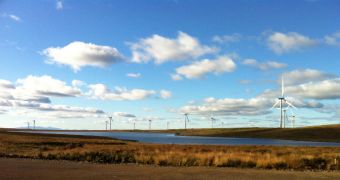According to the results of a long-anticipated document, it would appear that it is both feasible and affordable to run the entire world on renewable and alternative energy within four decades.
The Energy Report, which experts worked on for more than two years, shows that all electricity produced in the world in 2050 could be obtained in a clean, renewable, and economic manner.
All that is needed for that to happen is a change in the perception the general public has on this issues. Additionally, the political and financial wills have to be there as well. In other words, the interests of big oil companies need to lose the priority they currently have over the common good.
Experts with the World Wildlife Fund for Nature (WWF) were responsible for the Energy Report, a well-prepared document that also includes solutions next to the claims and propositions it makes.
This is one of the first reports to be compiled by the conservation group in a global direction, and with regards to producing energy safely and effectively, in an adequate manner that could satisfy needs.
By 2050, thy world's population will increase considerably, most likely to 9 billion, maybe even more. As such, the need for energy will be boosted considerably, and will increase exponentially.
“If we continue to rely on fossil fuels, we face a future of increasing anxieties over energy costs, energy security and climate change impacts,” explains Jim Leape, the director general of the WWF.
“We are offering an alternative scenario – far more promising and entirely achievable. The Energy Report shows that in four decades we can have a world of vibrant economies and societies powered entirely by clean, cheap and renewable energy and with a vastly improved quality of life,” he adds.
“The report is more than a scenario – it’s a call for action. We can achieve a cleaner, renewable future, but we must start now,” Leape goes on to say, adding that the new document deals with power, transport, industrial and domestic energy needs.
In order to satisfy those needs, the world could rely on an isolated and residual use of fossil and nuclear fuels, in addition to obtaining energy from renewable source – the Sun, wind, Earth's heat and so on.
But building more solar power plants and wind farms is not enough in itself. The power they generate will need to be transported via smart grids to energy-efficient building, vehicles and industrial processes.
In effect, what is needed is a complete reshaping of the way we produce, handle, distribute and consume electricity. This is the only way to ensure that power shortages will not produced disastrous consequences for our planet, one way or the other.
“We will live differently, but we will live well. We must provide energy for all without imperiling our planet, and this report shows that we can,” Jim Leape concludes.

 14 DAY TRIAL //
14 DAY TRIAL //